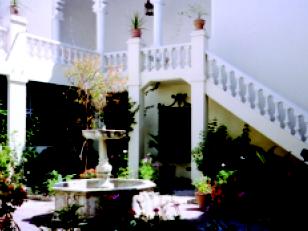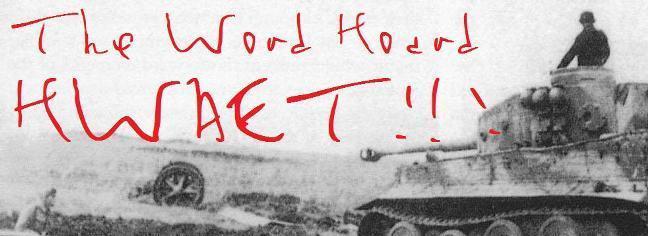
Pastries like perfume; people who live in mazes. Went to the American Legation in Tangier, a fancy old building in the Medina, with Bela and Bob. Morocco was the first country to officially recognize the United States in 1777. The official embassy is in Rabat, and now only Robert Shea, an old state-department hand, lives on here, alone – a smiling man who looks like he’s gritting his teeth, a giant bald American white father, who interrupts dinners for announcements and patronizing language lessons. Then we went to Mme Porte’s, a fancy tea-parlor with glutinous cakes and a couple of very forward Moroccan women staring at me. A woman who looked like a transvestite (and maybe was) with gigantic glasses on a neck-chain, in flamboyant red pants, carrying a spaghetti-haired dog; another woman , hunched over, in a bright pink dress, who Bela said resembled a wild bird. Bela has beautiful knees.
Chris wondered if Blaine Blaine was a liar who’d convinced himself. “Every man,” she intoned, “will look at this orange and see it differently…”
When my sister fell out of her crib, when she was 2, and broke her collar-bone, did that make her lose her sense of adventure, make her more cautious?
Idea for a story: action, description, dialogue, plot, characterization are all separated into different sections, to be assembled by the reader. Mark says I write “purple prose.”
The men here grab you by the arm, pseudo-affectionately but aggressively, with a parasitical “hello, friend.” For the women, it’s threatening. Mark says the American school is laid out like a military compound, an imposing structure on the top of a hill. Chris is painting intimate collages of doorways, sexy, dark and mysterious. A pause in a conversation and we hear an eerie piping outside. In the distance, fires at night on the other hills, fires of burning garbage.
Last night, Sara was sitting on a sink when it broke off. Fountains of water shot off into the bathroom, flooding the halls. And earlier in the week, Carol fell asleep with a lit cigarette and her mattress caught fire. She woke up in a pyre, yelling for help and they threw the thing out the window. She was alternating between screaming “oh gawd” and how she almost died, and taking pictures and laughing. Sara called the fire department, who asked her “don’t you have water there?” and “what do you want us to do about it?” Outside the smoldering mattress, bats swooping like boomerangs.
Blaine locked me in his room, picking at his body and telling me about his new novel. He’s written an entire novel! It’s called Blueboy, the Tragical History of Cloud Range. You can get your way a lot by being either rich or crazy.
Carol is working on a sacred, secret painting. She says she’s “gonna do Ramadan, except for maybe a little wine.” She says “slime” instead of “salaam.” She says, “I don’t know what I’m gonna do for my next pictchah.” Chris is offended, saying that artists should work on ideas, series, follow a theme to its exhaustion, improvising and experimenting. Her new sketches of doorways are changing, bigger in the frame and blacker. Soon they will fill the canvas. Her old boyfriend keeps calling long distance, there are tears, though she insists she is in a good mood and snaps at people when they say she’s spacey or sad. She’s irritable.
Yesterday I got bit by a dog on the way to Paul’s – just a nip, no blood. But weird. Clara found a complete, shiny black snakeskin. Staying up all night on the first night of Ramadan, Mark, Chris and I saw Venus rising in the east. “If I had a camel I’d ride towards it,” Mark says.
The other night Mark and I went downtown at 2:30 looking for adventure, getting tired of Carol’s friends making a fool of her and her enjoying their attention. We went to a greasy place and ate greasy food. We met two British chicks; one was real tough and tried to be intimidating, sneering, but they turned out to be friendly. Her friend was incredibly attractive. They kept saying stuff like “heavy” and “whole heap” (a West Indian expression, they assured me when I asked), and that they’d come to Tangier “for the men.” The sneering girl was with a Moroccan dude they kept calling “John Travolta.” On the way back, the king’s flags were crisply cracking in the wind. “Great audio.”
Someone says Moroccans cannot leave the country. How can this be possible? They also say the same was true in Iran under the Shah. But students were able to go to college outside Iran! The Shah’s secret police used to photograph all the anti-Shah rallies in Europe and the USA, then harass the student’s families back home. So the protesters started wearing bags on their heads.
All the antennas on the roofs of the city point in the same direction.
Summer 1980, elections back home. Tonight, I looked at the newspapers and tried to figure out politics, tried to have an opinion of some sort, but I couldn’t form one. Reagan calls his wife “mommy,” and says “I’m not smart enough to lie.” Carter, Reagan. I literally could not choose, nor could I tell whom the others were choosing or who the papers were choosing. And how incredibly important it is at this time to be able to tell, to be able to choose. Hands are tied. I would love to be able to put it all on the back burner, ignore it all, run away to Seattle and hide in Cindy’s skirts. But “things” cannot be ignored, can they? Yet I ignore them, don’t care to get involved in politics, and I know that someday, somehow, inevitably, I’ll be involved anyway.
Jerry is selling all his belongings down to his shoestrings to make his way in this town, boiling water. He read one of his “in the head” manuscripts today, full of insanely fine-rendered details, dead bees, sounds, dreams, the process of waking up in minute imagery. He is both photographic and somehow blank in his transcriptions of the mundane, but, as Paul Bowles says, “it all means something to the writer…” Jerry’s story starts with a bush that has flowers dangling from it in the shape of stars. He said that after putting that delirious plant in at the beginning he felt that he could take the story anywhere, like waking up in a strange place. Clara’s story had an image of a boy dangling a toy doll’s leg on a string into an open manhole, laughing like a hyena – she said she didn’t make it up but saw it in Tangier. She told me she once worked as a secretary in an office that was under a primal scream therapy center.
Nothing but unfinished books in my library. I said I couldn’t go near my one finished story, and Bowles asked, “is it like decaying corpse and you need to wait till the stench passes to go near it?” As a “teacher” here, he limits himself to the fine-tuning, correcting grammar and making subtle word-choice suggestions. The polish and the spit. Blaine thinks this is bullshit, and did I really think I was getting my money’s worth? He got worked up, saying how Dostoevsky had terrible grammar but was possessed by fury and his artistic passion dictated no returning to correct and fix, only new progress at a rapid pace. That’s how Blaine sees himself, an ARTIST. “I hate to write,” he claims, but that’s all he does, saying he can’t help himself.
Paul told us that, as a child, he used to study an old atlas that was so big he could lie on parts of it. He’d make his own maps on grid paper, creating the flora and fauna and local legends and maybe even the language. Blaine Blaine said, in one of his moments of stunning insight, that Paul Bowles created North Africa and Morocco the way J.R.R. Tolkein created Middle Earth.
Mark grew into his father’s library – he died when Mark was nine (“a skeleton on the couch”), and all that was left were the books, his only windows into his dad’s character. He remembers his dad telling him, “people tell lies to satisfy a need, and eventually they wind up believing them…” Mark says he has an ancestor who fought in the Civil War – Charles Reinfed – who went from private to captain, survived many of the major battles, was wounded four times, and eventually died from a broken neck while house painting.
